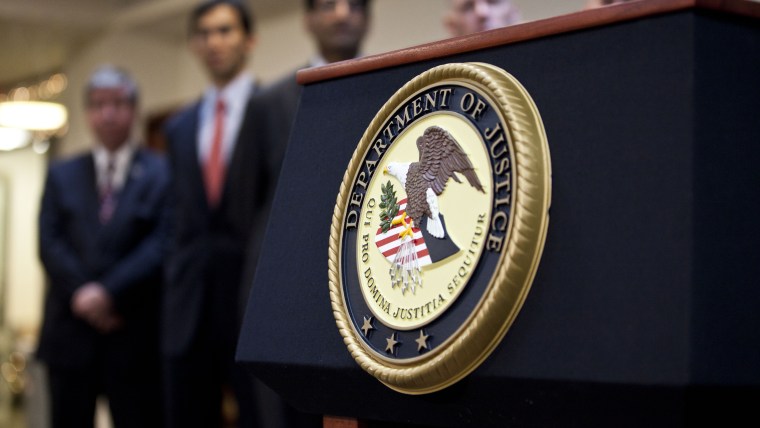To no one's surprise, Sen. Ted Cruz (R-Texas) wasn't pleased when the FBI concluded that there's no reason to indict Hillary Clinton over her email server protocols. But it was the
exact nature of his complaint that stood out as interesting.
"Under President Obama, we have seen the most politicized Department of Justice in history; I very much hope that politicization has not similarly corrupted the Federal Bureau of Investigation."
Let's note a couple of relevant points at the outset. First, Cruz may not actually believe his own rhetoric; he was just offering a knee-jerk response yesterday to a development he didn't like.
Second, I realize that political memories are too often exceedingly short, but if Cruz wants to have a conversation about "the most politicized Department of Justice in history," I'm delighted to engage.
A decade ago, the Bush/Cheney White House decided to give the Justice Department's roster of federal prosecutors a little touch-up: the Republican administration
fired several U.S. Attorneys who refused to politicize federal prosecutions before congressional elections. (Later, the GOP White House failed to comply with subpoenas in the matter, claiming they'd lost millions of relevant emails. The Bush/Cheney spokesperson at the time, Fox News' Dana Perino, told reporters, "
We screwed up.")
We later learned that the entire scheme
was engineered by the Bush/Cheney White House, which sought to politicize the Justice Department in ways unseen in American history.
Remember the phrase "loyal Bushies"? It originated with the U.S. Attorney "purge" scandal: independent prosecutors were removed from their posts if Republicans concluded that the attorneys weren't "loyal Bushies."
In fact, I'd love to introduce Ted Cruz to a young woman named Monica Goodling.
Remember her? As longtime readers may recall, Goodling made the transition from being an opposition researcher for the Republican National Committee to
scrutinizing applicants seeking non-partisan positions at the Justice Department, testing their partisan purity.
As has been well documented, Goodling blocked qualified officials from career DOJ posts if she suspected them of being Democrats -- or being gay. In one notorious instance, Goodling blocked a career prosecutor from being promoted to a key counterterrorism post because she discovered that the prosecutor's wife had donated money to some Democratic congressional candidates.
What [Eric] Holder stands to inherit from Michael Mukasey and his predecessor Alberto Gonzales is not a Justice Department that was slightly confused about where the law began and politics ended. If confirmed, he will take over an institution where, at least in recent years, politics sometimes had no end. [...] Things at Justice worsened with internal reports finding the department had hired career civil servants, law student interns, assistant U.S. attorneys, and even immigration judges based on their loyalty to the GOP. Secret memos produced by the department's Office of Legal Counsel authorized brutal interrogation techniques and warrantless government eavesdropping. The subordination of law enforcement to politics led to the flight of career attorneys in the department's Civil Rights Division and especially the Voting Section, where by 2007 reportedly between 55 percent to 60 percent had transferred or left the DoJ. If the rot at Justice could have been cured by simply replacing Gonzales, the appointment of Michael Mukasey, a respected retired federal judge in 2007, might have been enough. It wasn't. To be sure, Mukasey said noble things about the evils of torture and made moves toward disentangling the department from the White House. But more often than not, Mukasey declined to lance the boil. He refused to call water-boarding torture. He insisted no crimes were committed when department officials violated civil service laws. And he criticized those seeking accountability for the architects of the administration's torture policy as "relentless," "hostile," and "unforgiving." Mukasey collapsed while giving a speech this past week, but thankfully the incident seems not to have been serious.
Around the same time, Andrew Cohen
wrote a primer on former Attorney General Alberto Gonzales that continues to resonate: "By any reasonable standard, the Gonzales Era at the Justice Department is void of almost all redemptive qualities. He brought shame and disgrace to the Department because of his lack of independent judgment on some of the most vital legal issues of our time. And he brought chaos and confusion to the department because of his lack of respectable leadership over a cabinet-level department among the most important in the nation."
"Under President Obama, we have seen the most politicized Department of Justice in history"? Even by Ted Cruz's standards, that's completely bonkers.
